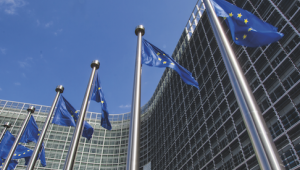Such financial instruments are used to deliver the EU budget to member states, and if properly executed should result in a number of benefits that can’t be achieved through the use of grants.
However, in a new report, the ECA found that the financial instruments used by the EU between 2007-13 in areas including regional, social, transport and energy policy, worth €5.5bn, were marred by high management fees, poor design, and poor execution. Subsequently, they were failing to live up to their supposed benefits.
One such benefit is that the initial funding should be able to leverage additional public and private finance. Auditors also found that tax agreements were sometimes used to make instruments more attractive to private investors, which in some cases allowed investors to artificially reduce their tax bills.
The use of financial instruments in the EU has been substantially increasing since 2000, from €0.6bn between 1994-99, €1.3bn between 2000-06 and €5.5bn between 2007-13, to €16bn by the end of 2014.
The ECA estimates that by 2020, the total EU contribution to financial instruments for the 2014-20 period will be around €31bn.
Unlike grants, such instruments are managed by, for example, a bank, rather than by public administrations.
Auditors found that in many cases these fees were too high, exceeding the costs of similar instruments in the private sector and sometimes even the amount paid from the instrument to recipients.
They identified 23 such cases, in which, taken together, managers charged €28m in costs and fees to disburse a total of €4m to recipients.
Iliana Ivanova, the member of the ECA responsible for the report explained that “under certain conditions, financial instruments represent a better way to spend public money”. But she stressed it was “essential that their associated fees and costs are kept at a reasonable level going forward until 2020”.
The ECA also found that the amount paid in to financial instruments from the EU budget was often excessively large due to poor assessment of needs, meaning funds could often not be disbursed in full.
Moreover, often the financial instruments used did not even achieve their supposed benefits compared to grants, namely: that the funds will be repaid and can therefore be used again in a revolving cycle; and the ability to leverage additional public and private investment.
The ECA said the “revolving effect” of financial instruments was “limited” and “uncertain”, with less than a third of all instruments using their funds more than once by the end of 2014.
Auditors also found that financial instruments were “unsuccessful” in their key goal of attracting private capital, despite tax agreements being used in some cases.
Brussels has often chided member states for their use of such private agreements, known as ‘tax rulings’, with private companies, because they can enable the company to artificially lower their tax bill.
As part of a crackdown on corporate tax avoidance, last year the commission ruled that the Netherlands and Luxembourg had granted Fiat Finance and Starbucks illegal state aid in what became known as their ‘sweetheart deals’ with the companies.
The rulings are estimated to have helped Starbucks and Fiat avoid between €20-30m worth of tax since 2008 in the Netherlands and since 2012 in Luxembourg, respectively.
But the auditors found that in some cases, such rulings had been used to make the EU financial instruments more attractive to private investors. They highlighted at least one occasion, relating to a Luxembourg holdings firm, where the agreement may allow the firm to reduce or avoid paying full taxes.
Responding to the report, the commission pointed out that member states are in charge of implementing financial instruments. But said it will “continue helping them to fully seize these opportunities” and highlighted new rules for the 2014-20 period that are “more precise” than before.
“This does not rule out further improvements,” it said in a statement.
It also pointed to a “new range of ‘off-the-shelf’, ready-to-use instruments that had been designed to increase the uptake of revolving financial support and to combine public and private resources.
“For the 2014-20 period, the commission is encouraging member states to double their investments through financial instruments. This is because we know – based on our experience from 2007-13 – that these instruments can deliver,” the statement said, stressing that financial instruments are an important tool to get as much as possible out of the EU budget.














